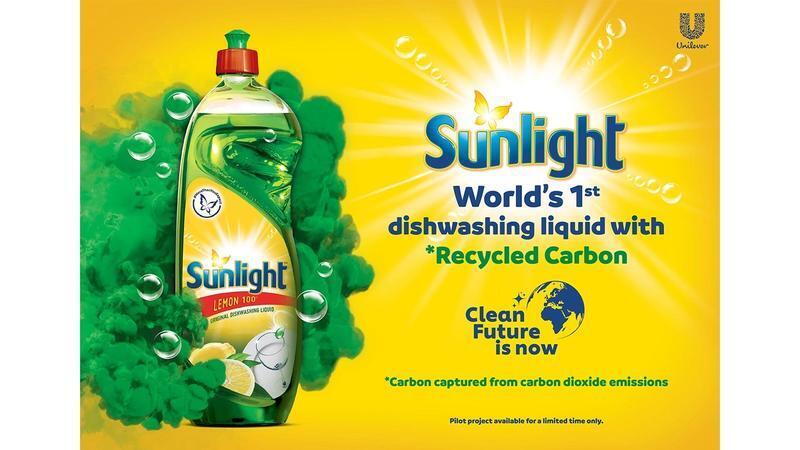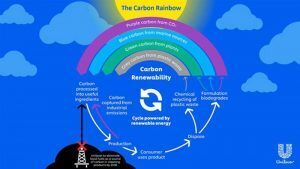
EU adopts new rules to significantly cut packaging waste with re-use targets
The European Union has formally adopted a regulation on packaging and packaging waste. The new ...

Unilever has introduced Sunlight in South Africa which is the world’s first hand-dishwash made using recycled carbon in its formulation.
Unilever is piloting the use of captured carbon emissions – or recycled carbon – in two new products in South Africa and in Germany.
And more recently, in Germany, Unilever has also launched our first laundry liquid in which the key cleaning ingredient is made with recycled carbon too.
The limited-edition Coral Optimal Color+ featured our first label on-pack to promote recycled carbon within a product, including a QR code that helps consumers find out more about recycled carbon and the brand’s sustainability journey. The product is also packaged in recyclable bottles made using 70% recycled plastic, meaning washing your clothes just got cleaner .
Andreea Sapunaru, Global Marketing Director Fabric, Cleaning, said of the launch, “We undertook a full product development for the launch in Germany – not only in changing the formulation, but the packaging too. It’s a market in which we see high consumer sentiment for more sustainable solutions and so we’re delighted to have launched this as a first step in our journey to a Clean Future.”
Unilever has been committed to eliminating virgin petrochemicals from its cleaning and laundry formulations.
As part of Clean Future strategy, Unilever developed the ‘Carbon Rainbow’ to help illustrate how the company is working to shift the carbon inputs used in our products to renewable and recycled sources.
The company is working to replace non-renewable virgin fossil fuels, also known as ‘black’ carbon, with other renewable and recycled carbon sources. These include ‘purple’ carbon captured from the air or from industrial emissions, ‘blue’ carbon from sources in the ocean, ‘grey’ carbon from waste materials and ‘green’ carbon from plants and biomass.
Working with its partners LanzaTech and India Glycols Limited (IGL), carbon recycling processes are used to trap industrial emissions from a steel plant before they enter the atmosphere.
The captured gases are added to various bacterial cultures (a bit like yeast) to convert them into ethanol. This is then used to produce surfactants – a key cleaning ingredient that creates foam and breaks down oil, grease and soil. Surfactants are typically made directly from fossil fuels, making them one of the most greenhouse gas intensive ingredients in our products, so being able to create them using recycled carbon is a big environmental win.
Jon Hague, Unilever’s VP for Science and Technology, who leads the Clean Future program, says: “Our partnership with LanzaTech and IGL has enabled us to use a world-first innovation in the cleaning industry and trial it across different brands, products and markets. Our journey to a Clean Future is well underway and how we bring this to life for consumers in our products and on-pack is key to helping them make more informed purchasing choices that are better for them and the planet.”

The European Union has formally adopted a regulation on packaging and packaging waste. The new ...
Inaugurating the Abydos Solar Power Plant in the Upper Egypt governorate of Aswan represents a ...
Businesses that fail to adapt to climate risks like extreme heat could lose up to ...


اترك تعليقا